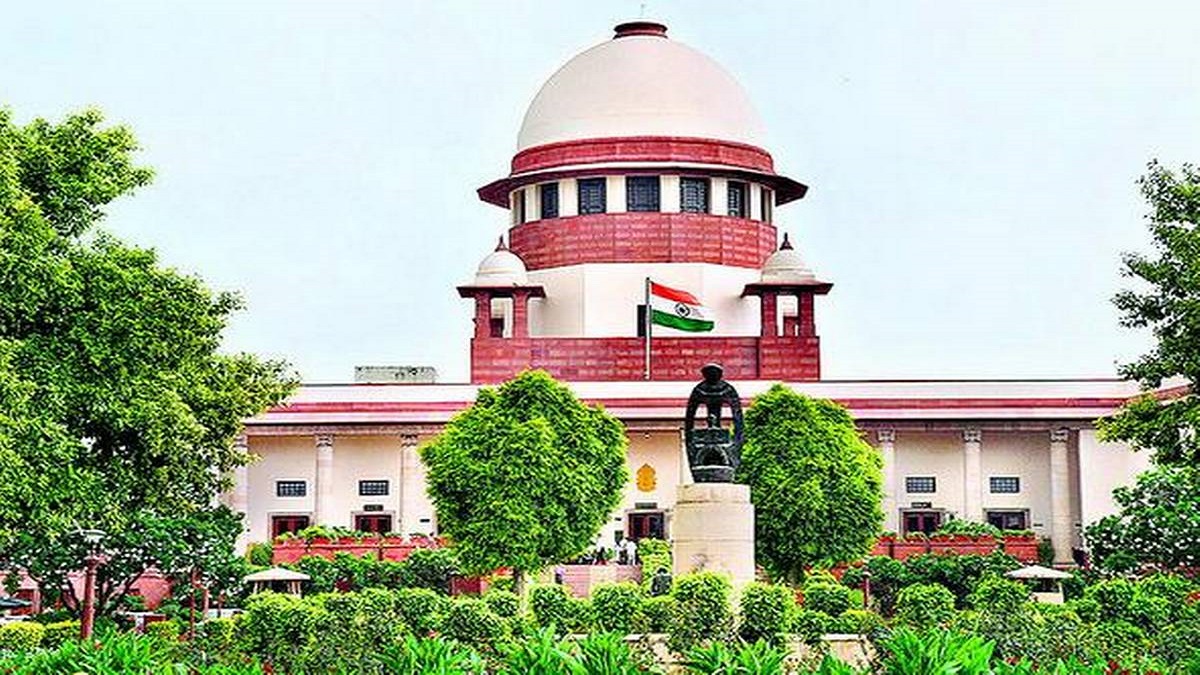
The Supreme Court on Tuesday posted to Friday the appeals filed by the Employees Provident Fund Organization(EPFO) in the issue related to payment of EPF pension to employees in proportion to their salary to decide the composition of the three-judge bench which should hear the matter
The appeals filed by the Employees Provident Fund Organization (EPFO) and the Union of India challenging the judgments of Kerala, Delhi, and Rajasthan High Courts which quashed the Employee’s Pension (Amendment) Scheme, 2014 was listed today before a three-judge bench comprising Justices Uday Umesh Lalit, S Ravindra Bhat, and Sudhanshu Dhulia.
Last year, a 2-judge bench of Justices UU Lalit and Ajay Rastogi referred the appeals to a three-judge bench.
During the hearing, Senior Advocate Aryama Sundaram pointed out that Justice Ravindra Bhat was part of the Rajasthan High Court bench that passed the order in the EPF matter.
Also, it was pointed out that one of the applications in the bunch of the matters was moved by a former junior advocate of Justice Bhat.
This led to Justice Bhat suggesting separating the Rajasthan High Court appeal matters from the bunch. The other option was that he would recuse from the matter.
After subsequent discussion, the bench headed by Justice Lalit informed that they would first hear the batch of petitions challenging the Kerala High Court order.
Regarding the change in the combination of the bench, Justice Lalit’s apprehension was whether a change in the current bench as possible. Because only two courtrooms have three-judge combinations, Bench 1, headed by Chief Justice NV Ramana, and Bench 2, which is headed by himself. Therefore, he would have to have a word with CJ IRamana on the matter, he said during the hearing.
Eventually, the matters were ordered to be listed on July 15 for directions before a combination of Judges, in which Justice Bhat is not a member. Justice Lalit said that the combination of the judges might be decided on July 15.
Sundaram also expressed that there was urgency in the matter, as many High Courts were passing orders in relation to EPF pensions in hundreds of cases, He submitted that the High Courts may have to be restrained from hearing cases till Supreme Court decides the larger issue.
In August 2021, the two judge-bench formulated two principal questions for consideration:
- Whether there would be a cut-off date under paragraph 11(3) of the Employees’ Pension Scheme and
- Whether the decision in R.C. Gupta v. Regional Provident Fund Commissioner (2016) would be the governing principle on the basis of which all these matters must be disposed of?
In the August hearing, the difference between Provident Fund schemes and Pension schemes was stressed by the Employees Provident Fund Organisation. The argument was that if no cut-off date is made applicable under clause 11(3) of the Employees Pension Scheme for making uncapped pension contributions, it would create a great imbalance.
Further, if the option under paragraph 11(3) of the Pension Scheme was to be afforded well after the cut-off date, it would amount to cross-subsidization by those who were regularly contributing to the Pension Scheme in favor of those who come at a later point in time and walk away with all the advantages.
The Kerala High Court’s 2018 judgment which quashed the 2014 amendments to EPS Scheme had relied on the RC Gupta verdict. In R.C. Gupta, which was decided by a 2-judge bench in October 2016, the Supreme Court had struck down the six-month opt-in window from 1 September 2014, for employees to continue making uncapped pension contributions.
EPF Pension Case: Timeline
In 2019, a three-Judge Bench comprising the then CJI Ranjan Gogoi, Justice Deepak Gupta, and Justice Sanjiv Khanna dismissed the Special Leave Petition filed against a Kerala High Court Judgment setting aside Employee’s Pension (Amendment) Scheme, 2014 that capped maximum pensionable salary to Rs.15, 000 per month.
The Kerala High Court, while setting aside the 2014 amendments by its 2018 judgment, had declared that all the employees shall be entitled to exercise the option stipulated by paragraph 26 of the EPF Scheme without being restricted in doing so by the insistence on a date. Further, the High Court had also set aside the orders issued by the EPFO declining to grant opportunities to the employees to exercise a joint option to remit contributions to the Employees Pension Scheme on the basis of the actual salaries drawn by them.
In April 2019, the Supreme Court dismissed the special leave petition filed by the EPFO against the Kerala High Court’s judgment, through a summary order. Later, in January 2021, a three-judge bench recalled the dismissal order in the review petitions filed by the EPFO and posted the matters for hearing in open court.
On February 25, 2021, the division bench of Justice UU Lalit and Justice KM Joseph restrained the High Court of Kerala, Delhi, and Rajasthan from initiating contempt proceedings against the Central Government and the EPFO over the non-implementation of the HC verdicts.
